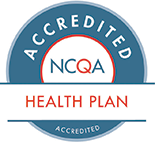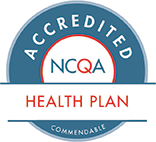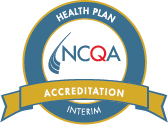When is it needed?
When conservative treatments don't help, spine surgery may offer relief. But it doesn't help every type of back pain. In fact, spine surgery is needed in only a small percentage of cases.
Whether to have spine surgery should be a cooperative decision made by you, your family, and your family physician. Your doctor may refer you to a specialist for a thorough evaluation to determine if you could benefit from this surgery.
Most people have back pain at sometime during their life, and 90 percent of these people get better without treatment or with conservative therapy after four to six weeks. Only 5 percent remain disabled longer than three months.
Most conservative treatment calls for pain relief, rest, steps to reduce inflammation and measures to restore strength and normal activity. Severe cases of disk degeneration that put pressure on the spinal nerve roots may permanently affect the nerves that control muscle movement or sensation in an extremity. Herniated disks generally heal themselves, and surgery is rarely necessary.
If the disk is just temporarily distorted, the potential for complete recovery is excellent. If the outer membrane actually breaks or ruptures and loses some of its gelatinous center, the damage to the disk may be permanent.
In most situations, an operation won't be considered unless conservative measures have failed, and even then surgery is not often indicated. Spine surgery is usually reserved for times when spinal nerves are compressed, causing numbness along the back of your leg.
Back pain can be caused by a number of different health situations.
Trauma or wear and tear
Trauma, aging, improper body mechanics and normal wear and tear can injure your spine. Damage to any part of your back — especially damage that puts pressure on your nerves — can cause pain and other symptoms.
Direct injury to the spine may cause a bone fracture anywhere along your vertebral column. Osteoporosis — loss of bone density — can weaken vertebrae, causing them to fracture or collapse.
Pinched nerves or pressure on the nerves
When the amount of space in the spine becomes reduced, nerves can get pinched. The disks separating the bones in your spine can also bulge or rupture (herniate), which can irritate nearby nerves. However, many people with bulging disks have no pain.
Spinal disk problems
When a herniated disk causes weakness or paralysis of the nerves that control muscles of the back and limbs, or if you lose control of your bladder or bowels because of the damaged disk, your doctor may recommend surgery.
Other medical conditions
The following conditions may require surgery if they're progressive, painful or causing nerve compression:
- Scoliosis, a curvature of the spine
- Kyphosis, a humpback deformity
- Spondylolisthesis, the forward slippage of a segment of the spine
- Spinal stenosis, narrowing of the spinal canal typically from arthritis
- Radiculopathy, the irritation and inflammation of a nerve caused by a herniated disk
- Degenerative disk disease, the development of pain in a disk as a result of its normal wear and tear
Resources
Please visit these resources for more information:
Understanding Spinal Disk Problems -- Diagnosis and Treatment, 2009, WebMD.
Back surgery: When is it a good idea?. 1998-2010. Mayo Foundation for Medical Education and Research (MFMER).
Low Back Pain. May 2009. American Academy of Orthopaedic Surgeons.
We're sorry, this information is not available in . Please use the dropdown at the top of the page if you would like to view information for another state.
Questions?
If you can't find an answer, please feel free to contact our Customer Service Customer Service Customer Service
Questions?
If you can't find an answer, please feel free to contact our Customer Service
Employer web tools
Benefit Tracker
Check benefits, eligibility, incentive and utilization
Rate finder is now in the Producer Dashboard
Log in with your current username and password to create quotes for groups up to 50.
Producer DashboardLog in






Hello.
We have exciting news to share. ODS is changing its name to Moda Health.
Moda comes from the latin term "modus" and means "a way". We picked it because that's what we are here to do: help our communities find a way to better health.
Together, we can be more, be better.
Please select the state you live in, or the state where your employer is headquartered, so we can tailor your experience:

Hello.
Please select the state you live in, or the state where your employer is headquartered, so we can tailor your experience:
Privacy notice
We use cookies and similar analytics technologies to understand how visitors interact with our website, improve performance, and enhance user experience. These tools help us analyze traffic patterns and usage trends.
We do not collect or store personal information, track users for advertising purposes, or use social media plugins.
By continuing to use this site, you acknowledge our use of cookies for analytics purposes only. For more information, please refer to our Privacy Policy.
Changing your location to Oregon
You can return to your previous location in the site header.


